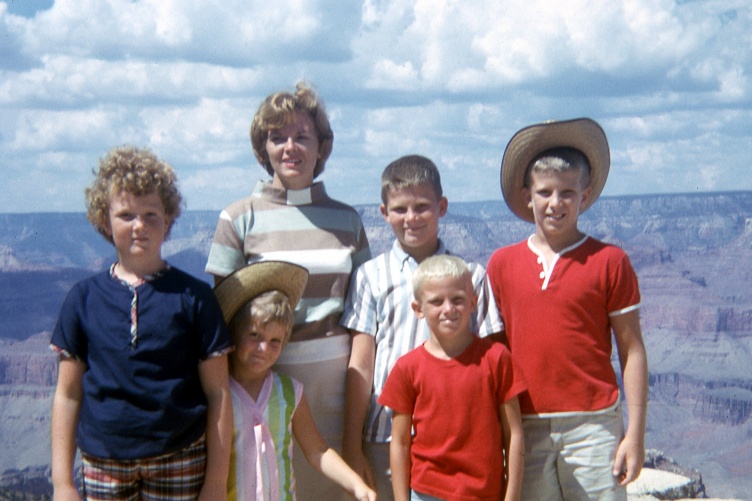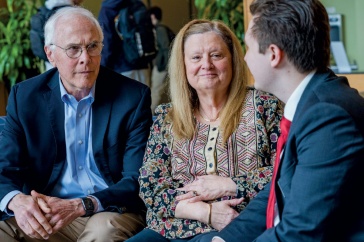
Photo courtesy of Gary Smith
Gary Smith was eight years old the last time he heard his father’s voice in person. It would be nearly 50 years before he heard it again.
Maj. Murray L. Smith ’55 died as a result of his injuries in Vietnam in 1967. A fighter pilot and 12-year veteran of the Air Force, Smith was 34 years old. He left behind a wife and five children; Gary was his second-youngest.

This story was part of the fall edition of IMPACT, the donor publication of good news and inspiration made possible by UNH supporters. Read more stories like this in the latest edition: impact.unh.edu
Four years ago, when family members were going through his mother’s things after her death, they came across a box of 24 old reel-to-reel tapes that Maj. Smith had recorded and sent to his wife while he was stationed in Vietnam.
“That was a routine way to correspond in the 60’s,” Gary Smith says. “He left shortly after my eighth birthday, so I only knew him for that long. The tapes were a way to get to know more about him. To hear his voice, after all that time — I didn’t remember it. It was very moving.”
So moving that in 2017, 50 years after his father’s death, Smith decided to create an Air Force ROTC scholarship at UNH in memory of his father, who was an ROTC cadet majoring in zoology while attending UNH. He has since renamed the fund the Major Murray L. Smith USAF ’55 and Donna A. Smith Scholarship to honor both of his parents.
“My mother was a freshman in high school when she met my father. He was a senior. They got married her senior year,” Smith says. “By the time he graduated from UNH, they had two kids and he was active duty with the Air Force.”
Smith says his mother was very supportive of his father’s career and that both parents had family at the core of everything they did. Before he was deployed to Vietnam, they were active in the community as well. His father coached for their sports teams and refereed for high school basketball games; Mrs. Smith was a den mother.
“I found him to be a rather philosophical person. Listening to the tapes gave me such a better idea about him,” Smith says. “He would count the days until he’d see my mother, when he’d get R&R in Hawaii.”
His father also addressed each of his children in the tapes, asking about their schoolwork, sports, scouting events or other activities they participated in, making a point to acknowledge each child individually. He also made it a point to remind them to help their mother, who was the sole caregiver of the five of them, who ranged in age from 5 to 13.
“She had all the responsibility. To him, the most difficult outcome of his deployment to Vietnam was being away from the family he loved very much,” Smith says. “Truly, one can feel the depth of his feelings for family from listening to the tapes.”
Smith also learned that his father was able to view the country where he was fighting in a very different light. Maj. Smith talked of how beautiful the area would be if there wasn’t a war going on.
He’s also learning more from those who served with his father, by reaching out to various organizations of retired members and through USAF publications. He’s heard from a former Moody AFB flight school student, a former instructor, and even medical personnel present when his father was brought into the field hospital after the crash of his plane in 1967. “I’ve come to learn my father was well-liked by many for his humbleness and genuine concern for others.”
Gary Smith followed in his father’s footsteps, serving in the Air Force for 31 years. His own son is doing the same. Smith takes pride in that, three generations serving their country. Still, of his father he says, “Those are tough shoes to fill.”
-
Written By:
Jody Record ’95 | Communications and Public Affairs | jody.record@unh.edu
















































